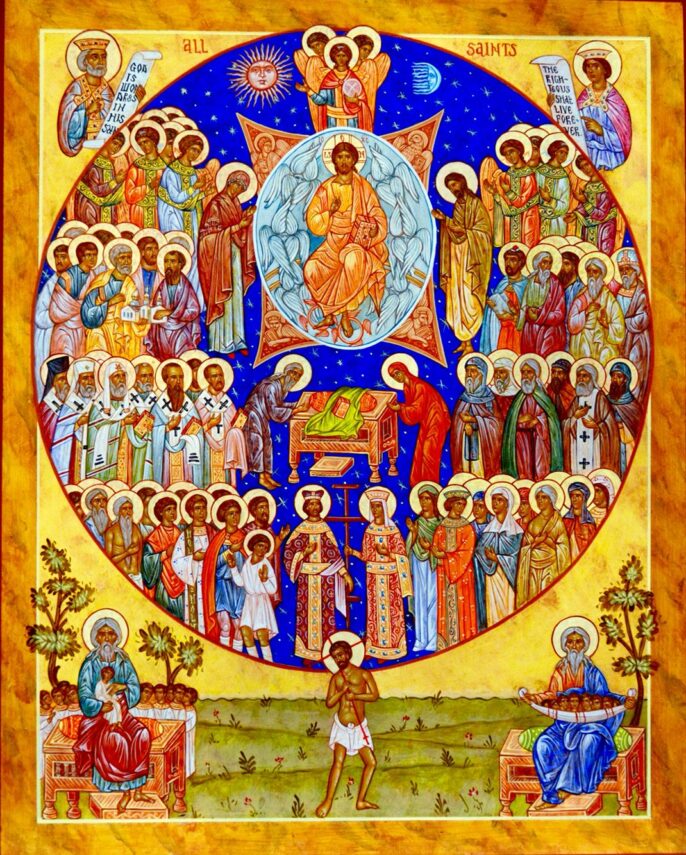John 17:1-13 2025/06/01 Osaka Church
In the name of the Father, the Son, and the Holy Spirit
I truly believe that we Christians are greedy.
We are not satisfied with modest happiness. If we were satisfied, we would not come to church on Sundays. We would go to the park with our families.
We are not satisfied with being exposed to refined culture and art. If we were satisfied, we would not come to church on Sundays. We would go to exhibitions and concerts to enrich our eyes and ears.
We are not satisfied with noble ideals such as the realization of peace and social justice. If we were satisfied, we would not come to church on Sundays. We would run around collecting signatures or participating in demonstrations.
Christians don’t focus on such things and instead long for “eternal life.” This is actually not something that can be expressed with a polite word such as “hope.” We must discard the various versions of happiness and values this world offers, saying, “This is wrong,”and throw them away like “rubbish,” in the words of the Apostle Paul, and yearn for “eternal life.”
So what is “eternal life”? A life that never dies? Absolutely not! Living forever even after growing old is something no one, not even Christians, would wish for. So what about immortality? Medical science may one day achieve immortality. But even if such a rosy future were to be realized, there would remain “something” that people continue to thirst for, something that people continue to reach out for, something that all human activities are “wanderings” to quench that hunger. The Gospel calls that “eternal life”—a phrase that barely expresses, within the limits of human language, that which remains unreachable and unfading.
Christ himself prayed to God: “And this is eternal life, that we may know you, the one true God, and Jesus Christ, whom you have sent.”
The fact that an incurable yearning and desire for what can only be called “eternal life” stirs in the deepest depths of our hearts shows that there really is one who can only be called the “one true God,” and that eternal life is not an illusion. At the same time, this prayer of Jesus declares that the thing that will satisfy our yearning for the “one true God,” who is invisible and beyond our human knowledge, is none other than “knowing Jesus Christ Himself.” After all, Jesus prays to the one true God, saying, “I came from you,” and “All mine are yours, and yours are mine.”
However, knowing Jesus does not mean knowing the contents of what the Bible teaches about Jesus as knowledge. “Knowing” in the Bible is always an experience. To experience the love of Jesus is to live the life in prayer of the Church. In particular, it means to share His body and blood, which He offered as a testimony of His love in the midst of His suffering on the cross, and which He continues to offer even now in this worship service. In this sharing, we come to know that God is truly love, that Christ honored God’s love by His death on the cross, that we have been forgiven by that love, and that we are pointed to the path to eternal life. We know this not in our intellect, but as “knowledge” engraved in our hearts and bodies, and as joy that overflows from them. This knowledge gives us true freedom to break through the limits of worldly wisdom and knowledge, to break the bonds of worldly desires, and this freedom fills us with true gratitude. Conversely, this true gratitude gives us true freedom and true knowledge. The Divine Liturgy is called the Eucharist, Gratitude. Our task is to carry the joy of gratitude we experience there into the realms of our lives, to our neighbors. The call to “go out in peace” is a call to that task.
Let us listen once again to the triumphant cry of the holy apostle Paul, who rejoiced throughout all his suffering and sorrow:
“I count all things as loss because of the excellence of the knowledge of Christ Jesus my Lord. For his sake I have lost all things, and count them as refuse and rubbish.” (Philip 3:8)

